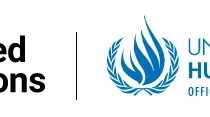Progress made and remaining challenges with regard to the recommendations of the independent international fact-finding mission on Myanmar
16 September 2022

Report of the Office of the United Nations High Commissioner for Human Rights
Human Rights Council
Fifty-first session
12 September–7 October 2022
Agenda items 2 and 4
Annual report of the United Nations High Commissioner
for Human Rights and reports of the Office of
the High Commissioner and the Secretary-General
Human rights situations that require the Council’s attention
Summary
Pursuant to Human Rights Council resolution A/HRC/RES/46/21, this report: assesses actions taken by various actors following release of the Independent International Fact-Finding Mission on Myanmar’s 2019 conference room paper on the economic interests of the Myanmar military; identifies continuing and emerging challenges; and uses examples to highlight relevant issues.
Introduction and methodology
- In resolution A/HRC/RES/46/21, the Human Rights Council requested the Office of the High Commissioner for Human Rights (‘OHCHR’) to provide the Council at its fifty-first session a comprehensive report on progress made and challenges remaining with regard to recommendations made by the Independent International Fact-Finding Mission on Myanmar (‘FFM’) in its 2019 conference room paper on the economic interests of the Myanmar military (‘Tatmadaw’), and to provide further recommendations.
- In its paper, the FFM determined that the ability of the military and its leadership to draw on various sources of revenue enabled its conduct, including perpetration of serious international crimes. The FFM investigated five areas of the military’s economic interests, came to conclusions, and listed implicated individuals and companies in separate annexes. Its recommendations were targeted at seven groups of actors. Updates and responses to the original paper are publicly available.
- This report assesses actions taken by various actors following release of the FFM’s paper until 31 July 2022, identifies continuing and emerging challenges, and uses examples to highlight relevant issues.
- This report was prepared using open-source material collected and subjected to credibility assessments, including Myanmar Extractive Industries Transparency Initiative (‘EITI’) databases, corporate records, public reports containing first-hand information from credible and reliable sources, and satellite imagery and analysis. In addition to an open call for submissions, all named entities (26 States, 41 companies, and 11 institutions) were contacted to the extent possible during the drafting process. All 42 submissions received were duly considered. Remote interviews were also conducted with subject matter experts, civil society actors and journalists. Notes from these confidential meetings are on file. Given the grave security risks that individuals in Myanmar face since the military launched its coup, OHCHR prioritized the safety of all interlocutors above other considerations.
Announcements
28 February 2025
Asian NGO Network on National Human Rights Institutions , CSO Working Group on Independent National Human Rights Institution (Burma/Myanmar)
Open letter: Removal of the membership of the dis-accredited Myanmar National Human Rights Commission from the Southeast Asia National Human Rights Institution Forum

Progressive Voice is a participatory rights-based policy research and advocacy organization rooted in civil society, that maintains strong networks and relationships with grassroots organizations and community-based organizations throughout Myanmar. It acts as a bridge to the international community and international policymakers by amplifying voices from the ground, and advocating for a rights-based policy narrative.